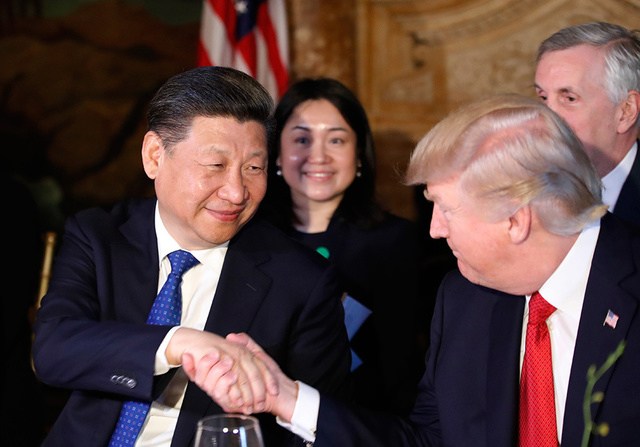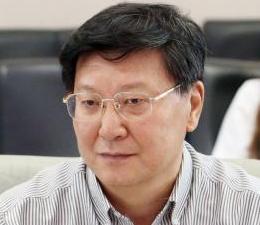
China-US relations have evolved. These changes are making people puzzled.
Are these changes of a tactical or strategic nature? China has taken great care to control friction with the US to prevent it from escalating to the strategic level. For example, after the midair collision between a US surveillance plane and a Chinese fighter jet in 2001, the two sides dealt with the incident and did not allow it to worsen to the level of a strategic conflict. The two nations also handled the 1999 US bombing of the Chinese embassy in the former Yugoslavia in a similar manner. The current trade friction between the two countries is very perplexing. Many tend to believe that the trade conflict is an evidence of the so-called Thucydides Trap between an emerging power and an established power and is therefore a strategic issue. US President Donald Trump is a man known for the Art of the Deal and is pushing the two to reach consensuses on trade disputes. If the US really considers its conflict with China as strategic or structural, it would not feel satisfied with any concessions China may make, unless such concessions could stop China’s rise. It seems members of the US trade delegation could not even reach consensus on this among themselves. The hawks, led by Trump’s trade adviser Peter Navarro, insisted on punishing China, while the doves, represented by Treasury Secretary Steven Mnuchin, advocated for reasonable and acceptable deals with China. It seems the US is also caught in a dilemma between tactics and strategy in handling its relations with China.
Are challenges in bilateral commercial relations caused by economic policies or structural problems? Statistics showed that China-US bilateral investments dropped by a large margin in 2017, and the downhill trend continued into 2018. Of bilateral investments, the decline in China’s outbound investment in the US was extremely substantial. Trade and investment are always considered to be the anchor of China-US relations. Is this declining investment and trade friction indicative of the future of China-US relations? This depends on whether the factors causing it are structural ones or policy-related. China imposed curbs on irrational outward investment, and therefore Chinese investment in the US service sector declined significantly. The US also tightened its scrutiny over foreign investments and imposed various restrictions on mergers and acquisitions by Chinese companies in the high-tech and sensitive sectors. China does not have any investment curbs specifically targeting the US, therefore the decline in US investment in China might have been caused mainly by the rising costs of Chinese labor, land, and logistics services, and might also be related to investment preferences. It’s also true that some Chinese industries have yet to fully open to foreign investment.
The political landscape in the US is evolving. The Democrats prefer liberalism and pay more attention to human rights and social issues, while the Republicans are more pragmatic and concentrate more on national interests. While in power, their stances towards China are remarkably different. The reason China-US relations have long remained mostly stable is, in addition to diplomatic skills, the strong inclination towards friendship in both countries. For example, China believes its relationship with the US is its most important one, and stresses that the two sides should strengthen communication, properly handle disputes, and foster a new type of major-country relations on the basis of mutual respect. In the US, there is also a wide consensus that relations with China should be appropriately handled. The US does not buy some of Chinese ideology and practices, but it doesn’t want confrontation.
People who know Trump would agree that he is a man who cares little about ideology but more about practical benefits, and this matches well with his character as a businessman and Republican. But ideological differences are often behind disputes over security interests. Countries including the US, Australia, and New Zealand imposed curbs on investments by China’s state-owned enterprises – or enterprises they consider to be State-owned ones. These curbs were not made for security and economic considerations but were obviously influenced by ideology. A US senator recently wrote to a Washington-based think tank asking it to withdraw an invitation to a Chinese scholar, alleging that the scholar had a background in the Chinese government. Such direct intervention into academic exchanges was unimaginable in the past. The US recently made a number of wrong moves on the Taiwan question. These moves were actually driven by ideological factors. In the past, China and the US actively managed their ideological differences and disputes and stressed that they should not obstruct normal exchanges and communications. This played an important role in propelling the development of China-US exchanges. Of course, isolated cases don’t mean that China and the US are caught in ideological conflicts, but the cases do merit attention from both sides, particularly the US.
Is the US alone or is the whole Western world playing tough on China? Trump takes a tough stance against both China and Europe. Europe opposes Trump’s unilateral policies on trade and climate change, but at the same time imposes restrictions on Chinese investments, criticizes China’s industrial policies and questions the Chinese initiative of building infrastructure in Europe. French President Emmanuel Macron is the leader of a new political force in Europe. He talked about countering China’s influence while visiting Australia, but he advocated cooperating with China to defend the global multilateral system immediately after he was back in Europe. German Chancellor Angela Merkel is a stern critic of the US on issues like trade, the Iran nuclear deal, and European security, but she openly expressed her doubt over China’s role in Europe. Europe’s China policy seems divided. It is worried about the expansion of China’s influence but also needs China’s cooperation to help defend international norms. And these norms have helped establish Europe’s political status in the world, including in the World Trade Organization and the Paris agreement on climate change.
China-US relations are evolving into a new era and the two nations need to adapt to each other and find new appropriate channels to handle their ties. Amidst great changes, it is natural to have some conflicts and problems. What they need to do is to find solutions to them.



